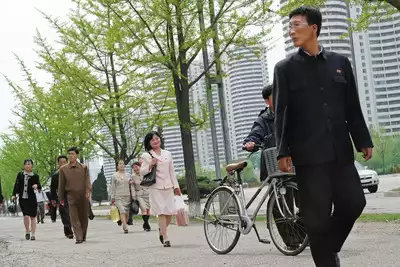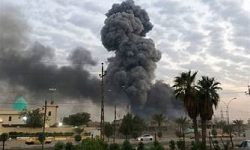
In North Korea, jeans are banned because they are seen as symbols of Western culture and rebellion. The regime, determined to maintain strict control over its citizens, enforces this ban through rigorous dress codes and the so-called “fashion police.” This measure reflects the broader efforts of the North Korean government to control all aspects of life and suppress any form of dissent or Western influence.
Historical Context
The ban on jeans has deep historical roots. After World War II, Korea was divided into North and South, each influenced by opposing global superpowers. North Korea, under Kim Il-sung, embraced communist ideologies with strong ties to the Soviet Union and later China, while South Korea aligned with the United States. Jeans became emblematic of American culture and Western individualism during the Cold War, which contrasted sharply with North Korea’s values of conformity and state loyalty.
Cultural Control Through Fashion
In North Korea, fashion serves as a tool for ideological control. The government promotes traditional Korean clothing and attire that aligns with socialist ideals while rejecting Western styles like jeans. This control over clothing is a means of maintaining the regime’s vision of a pure socialist society. Jeans, associated with rebellion and Western freedom, are considered a threat to the regime’s narrative and control.
Jeans as a Symbol of Rebellion
Jeans have historically represented resistance and countercultural movements. During the 1960s and 70s, they became symbols of youth rebellion and defiance across the world. For the Kim regime, even a small symbol of resistance like jeans is unacceptable. The government is vigilant in monitoring and suppressing any signs of dissent, viewing jeans as a potential gateway to Western ideas that could challenge its authority.
Enforcement of the Ban
The North Korean government enforces the jeans ban through a specialized unit known as the “fashion police.” These officers patrol the streets to ensure compliance with the country’s dress codes. Those caught wearing jeans may face severe consequences, including fines, public shaming, or imprisonment. The fashion police also serve to remind citizens of the importance of adhering to the regime’s prescribed appearance and maintaining loyalty to the state.
Implications of the Ban
To outsiders, the prohibition of jeans might seem trivial, but in North Korea, it is a significant aspect of the regime’s control. The ban on jeans reflects the government’s broader strategy to shape not only how people live but also how they think. In a society where even the smallest act of defiance, such as wearing jeans, is seen as a threat, the regime’s emphasis on control remains evident.









